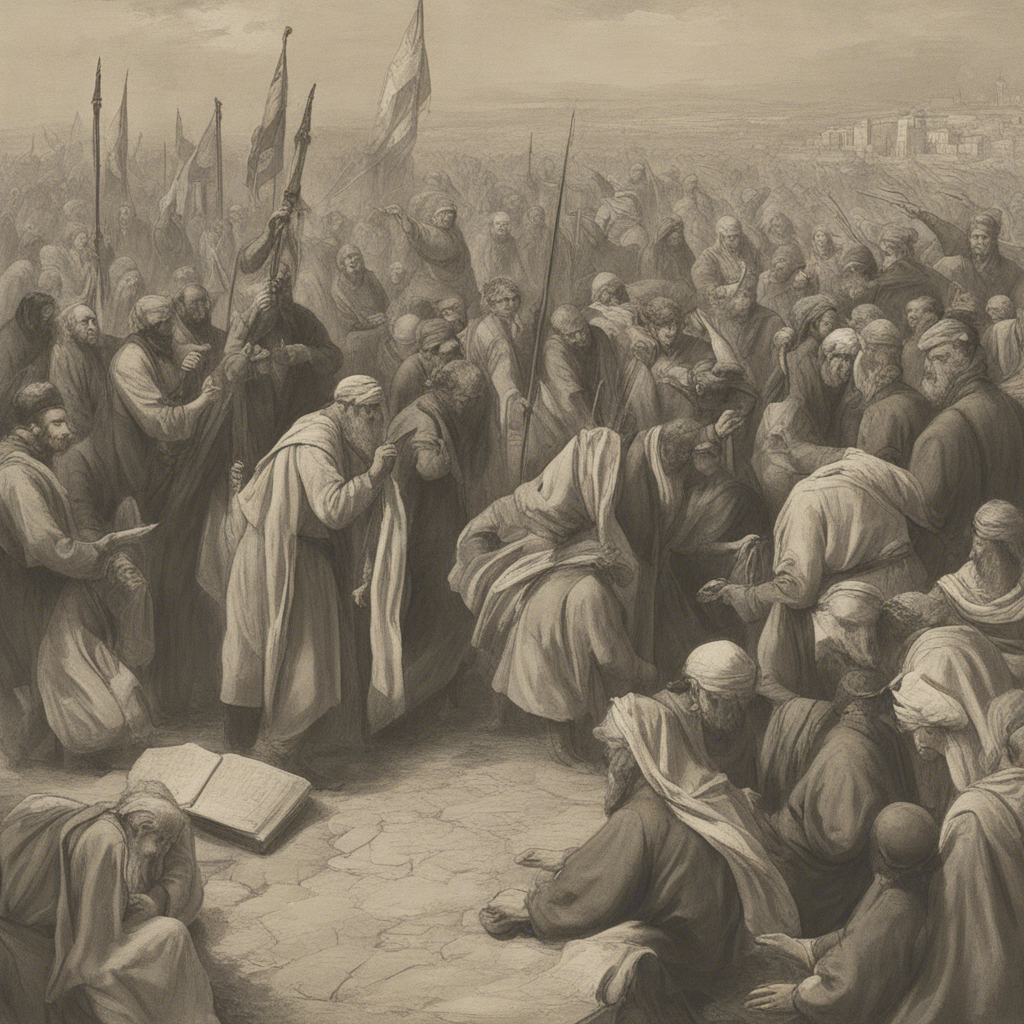December 20: Luke 20 Devotional
The Gospel of Luke, chapter 20, is a rich text that contains Christ’s teachings on authority, the resurrection, and parables. We shall discover some spiritual principles that are still relevant in these great texts.
The Parable of the Wicked Tenants: Understanding Authority 
Christ begins the book of Luke with the Parable of the Wicked Tenants (Luke 20:9–19). It’s an allegory-filled novel that gives a symbolic history of Israel’s treatment of God’s prophets.
Christ links the vineyard keepers (tenants) to the leaders and people of Israel in the parable. The owner represents God, who entrusted the care of His covenant people to Israel’s leaders. They have, however, been persistently disloyal. They abused God’s prophets (the servants in the story) when He sent them messages. It foreshadows how God’s Son (Jesus Christ) would be treated horribly and crucified.
“What will the vineyard owner do to them?” He’ll come and kill those tenants before handing over the vineyard to others.” Luke 20:15–16
By presenting this story, Jesus addressed individuals in positions of power who abuse their positions for selfish gain while ignoring their obligations to God’s people. He was forewarning them of their coming doom if they did not change their ways. The narrative is a potent reminder that authentic leadership comes only from God and should be applied with humility and righteousness. It asks us today to consider how we use our positions of influence or authority and whether we are good stewards of what has been entrusted to us.
Christ’s Teachings on Life After Death: The Resurrection
In Luke 20:27–40, the Sadducees, who believed there was no resurrection, confront Jesus about it. They offered a situation in which a woman had been married numerous times as a result of her husband’s death, and they asked whose wife she would be in the hereafter.
Jesus deftly answers their question by clarifying that people are no longer married or given in marriage in heaven. He adds that we will be changed into spiritual beings like angels and children of God.
God established marriage as an extraordinary institution for companionship and procreation on Earth. It is, however, not an immortal state; it is only transient. Our interactions with God will take on a very new shape in eternity.
Power Dynamics: Caesar’s Taxes
What do we owe to God, and what do we owe to our worldly authority figures? This significant inquiry appears in Luke 20:20–26, when leaders attempt to trap Jesus with a tax question.
When they inquire whether it is proper to pay taxes to Caesar, Jesus, sensing their deception, requests to see a denarius (coin). He points to the image of Caesar engraved on it and says the famous words:
“Then give to Caesar what is Caesar’s, and to God what is God’s.” Luke 20:25
Jesus deftly avoids their trap, delivering advice on how to combine civil and divine responsibilities. It causes us to reflect on our own lives, considering what we owe to God versus what we owe to our worldly authorities.
We were made in God’s image to remind us to give to God what is rightfully his—our hearts and lives devoted entirely to him.
Legal Educators Should Be Warned
In this concluding segment, Jesus gives a warning to the law teachers. He warns the audience to be wary of their hypocritical behavior and thirst for attention. Jesus highlights that while these religious leaders appear righteous on the outside, they are filled with greed and immorality on the inside.
Jesus warns his followers not to trust people based solely on their outward appearance or persuasive speech. Instead, he encourages people to seek true righteousness by sincerely and humbly obeying God’s commandments.
This warning acts as a reminder for us even today. We must use caution in our contact with people who claim spiritual authority. It is critical to compare teachings to what is stated in Scripture to ensure they are consistent with Jesus Christ’s character and teachings.
Conclusion: Applying Luke 20 Lessons to Our Lives
The spiritual journey through Luke 20 reveals three crucial life lessons: comprehending authority, the reality of life after death, and power dynamics. It motivates us to reflect on our actions and decisions, emphasizing faithfulness and obedience to the divine while handling our earthly responsibilities properly. What is our takeaway challenge? Read through Luke 20 again and note which lessons resonate most with you. Engage with them and consider how to incorporate them into your daily life.
“Everyone who falls on that stone will be broken to pieces; everyone on whom it falls will be crushed.” Luke 20:18. Living outside of God’s plan and purpose, rebelling against His sovereignty, leads to spiritual devastation, according to Jesus’ metaphor. It motivates us to stay committed and live our lives in accordance with God’s will. After all, spiritual enlightenment begins with admitting that we require heavenly guidance.
The eternal wisdom of Christ’s teachings in Luke 20 continues to deliver clarity, hope, and inspiration in our turbulent world. So, let us accept these gospel lessons and apply them daily. How will you implement the principles of Luke 20 in your life today?